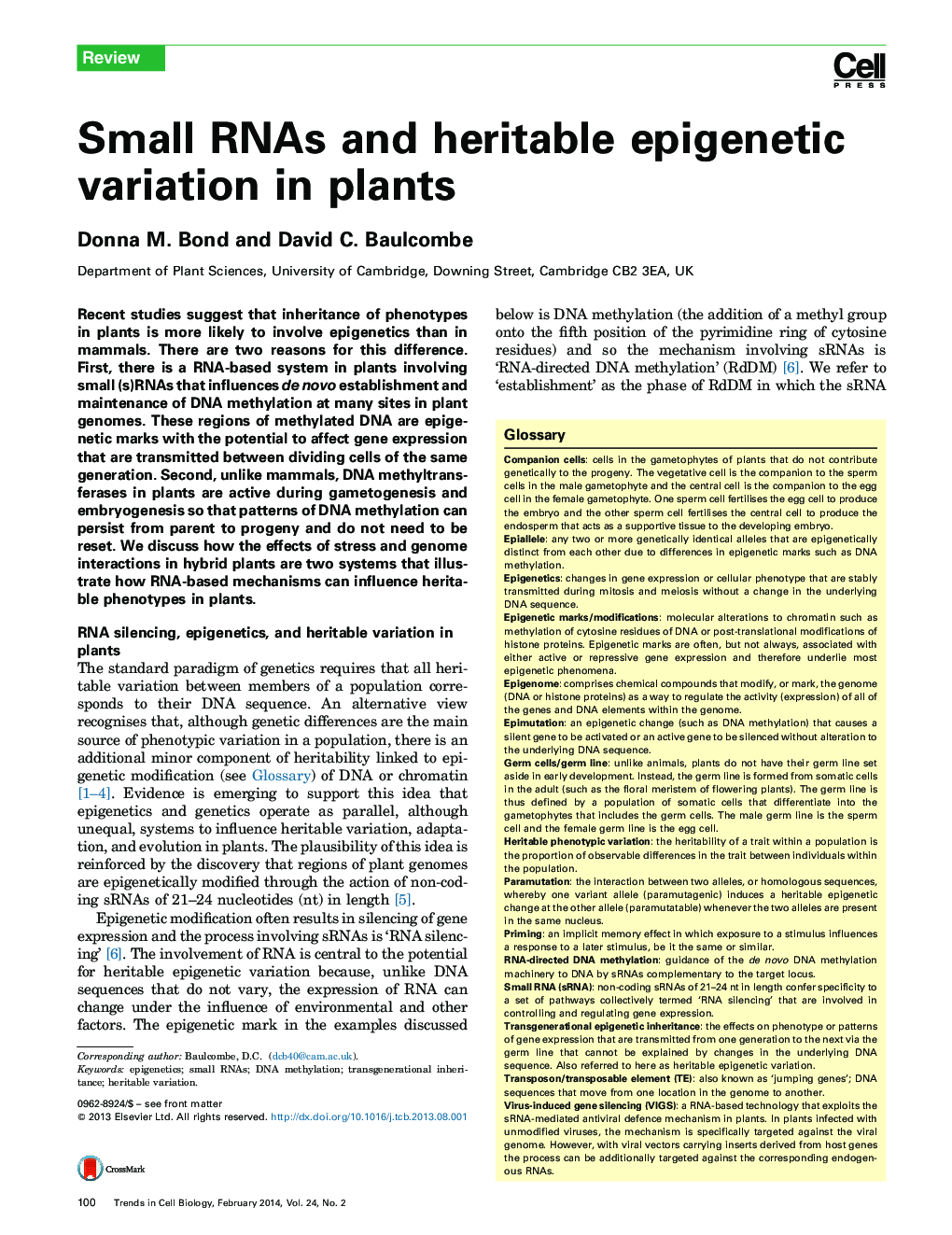| Article ID | Journal | Published Year | Pages | File Type |
|---|---|---|---|---|
| 2204437 | Trends in Cell Biology | 2014 | 8 Pages |
•sRNAs play a key role in the maintenance of DNA methylation from parent to progeny.•sRNA-mediated mechanisms have the ability to unlock the epigenetic potential of plants.•Stress-induced heritable phenotypes are more likely to be due to loss rather than gain of an epigenetic mark.•Genomic interactions in hybrids are a source of sRNA-mediated heritable epigenetic variation.
Recent studies suggest that inheritance of phenotypes in plants is more likely to involve epigenetics than in mammals. There are two reasons for this difference. First, there is a RNA-based system in plants involving small (s)RNAs that influences de novo establishment and maintenance of DNA methylation at many sites in plant genomes. These regions of methylated DNA are epigenetic marks with the potential to affect gene expression that are transmitted between dividing cells of the same generation. Second, unlike mammals, DNA methyltransferases in plants are active during gametogenesis and embryogenesis so that patterns of DNA methylation can persist from parent to progeny and do not need to be reset. We discuss how the effects of stress and genome interactions in hybrid plants are two systems that illustrate how RNA-based mechanisms can influence heritable phenotypes in plants.
